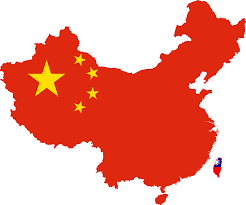China stocks saw a slight increase on Monday, as investors anticipated more stimulus measures following the unexpected economic slowdown in the second quarter. This downturn has been attributed to a prolonged property slump and job market concerns. In contrast, Hong Kong shares dropped due to weaker-than-expected economic data and heightened fears of Donald Trump potentially winning the US elections after a surprising attack.
Some market participants have high hopes for a key leadership gathering that starts this week on Monday. China’s CSI 300 Index rose by 0.2%, while Hong Kong’s Hang Seng Index fell by 1.4% by midday. Official data revealed that the economy grew by 4.7% in April-June, its slowest pace since the first quarter of 2023, missing analysts’ forecasts of 5.1% growth according to a Reuters poll.
Vasu Menon, managing director of investment strategy at OCBC, commented that the disappointing second-quarter economic growth in China, which is the first set of quarterly data not distorted by the pandemic, will add pressure on the Chinese government to boost confidence. This year, China’s economic growth has been uneven, with industrial output surpassing domestic consumption, which has fuelled deflationary risks amidst the property downturn and rising local government debt.
Hong Kong-listed tech giants declined by 2.4%, while mainland property developers plunged by 2.6%. In mainland markets, the tech-focused ChiNext Composite Index lost 1%, whereas energy shares rose by 1.6%. Woei Chen Ho, an economist at UOB, mentioned that while the 5% full-year target is not yet unattainable, more support will be necessary, likely through monetary policy and possible short-term rate cuts.
With business, employment, and consumer sentiment near record lows, the ongoing four-day plenum aims to restore confidence in the economy. However, conflicting objectives such as boosting growth while reducing debt may hinder significant progress toward change. Zhaopeng Xing, senior China strategist at ANZ, stated that the market has high hopes for the third plenum this week, though it is unlikely that counter-cyclical measures will be unveiled at the structural-oriented party convention.
The outlook for the second half of the year appears unfavourable for China’s export-driven growth due to increasing trade protectionism. Concerns about exports are heightened by the attack on US presidential candidate Donald Trump, which has made his victory seem more likely and injected a new level of political uncertainty into global financial markets.
Zheshang Securities noted that if Trump is elected, he may continue to impose tariffs on China, creating depreciation pressure on the yuan and negatively impacting domestic stocks, bonds, and exchange rates. During his presidency from 2017 to 2021, Trump initiated a tariff war with China. As a candidate this year, he has proposed tariffs of 60% or higher on all Chinese goods and a 10% across-the-board tariff on goods from all origins.
The current economic landscape in China presents several challenges, including a sluggish economy, potential trade conflicts, and the need for more substantial government support to meet growth targets and bolster market confidence.
Fidelity China Special Situations PLC (LON:FCSS), the UK’s largest China Investment Trust, capitalises on Fidelity’s extensive, locally-based analyst team to find attractive opportunities in a market too big to ignore.

